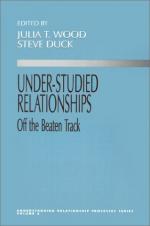|
This section contains 6,720 words (approx. 23 pages at 300 words per page) |

|
Historically, the relationship between psychotherapy and religion has been strained, because until recently it has been dominated by psychoanalytic theory and has turned on that field's conceptualization of illusion. Influenced as it is by the psychobiological origins of psychoanalytic theory, psychotherapy traditionally has considered religion an illusion in a strictly pejorative sense. Only relatively recently have many psychotherapists come to understand that illusion is a psychological need and that, as such, it can be healthily enjoyed in a socially beneficial way or distorted into pathology, just as any need can be. Religion has defensively reacted to psychoanalysis's largely negative consideration of it by campaigning against psychoanalysis, ignoring it altogether, or prematurely incorporating its theory. Understandably, religion has bridled at being considered merely illusory, for this consideration inherently denies the reality of religious experience. Often the psychoanalytic consideration of religious material has used a methodology...
|
This section contains 6,720 words (approx. 23 pages at 300 words per page) |

|




